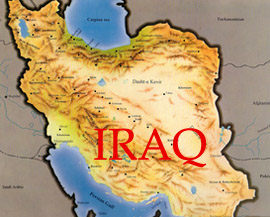Iran's supreme leader raises red flag about talks with US
 Tehran - Iran's supreme leader, Ayatollah Ali Khamenei, on Tuesday rejected any talks backed by the United States and said the Islamic state would not be deceived by a superficial conciliatory tone from Washington, media reports said.
Tehran - Iran's supreme leader, Ayatollah Ali Khamenei, on Tuesday rejected any talks backed by the United States and said the Islamic state would not be deceived by a superficial conciliatory tone from Washington, media reports said.
Tehran is currently negotiating with world powers, including Washington, over a deal on the provision of nuclear fuel for a research reactor in Tehran.
Khamenei has the final say on all issues in the Islamic state and his comments raised the possibility that last month's nuclear fuel deal could be derailed.
"We do not want any negotiation whose result is predefined by the US," Khamenei said, adding, "Every time they have smile on their faces, they are hiding a dagger behind their back."
"Iran will not be deceived by the superficial conciliatory tone of America," Khamenei said in a speech to students a day before marking the 30th anniversary of the seizure of the US embassy in Tehran by Islamist students in support of the Iranian Revolution.
Under the nuclear fuel deal, Iran would send its low-enriched uranium abroad for further processing to be used for the Tehran reactor. Iranian officials have said they would rather buy the fuel directly from a supplying country.
Ali Asghar Soltanieh - Iran's ambassador to the International Atomic Energy Agency, the world nuclear watchdog - said Monday that his country wants to purchase fuel along the lines of a deal it made with Argentina in the 1980s for supplying the Tehran reactor. That deal did not include any export or swap involving Iranian nuclear material.
That would go against the concept favoured by the United States, Russia and France, who want to see Iranian uranium shipped out of the country to be made into fuel to run the medical-use reactor in Tehran. The deal is seen as a way to prevent Iran from developing weapons-grade nuclear material.
US Secretary of State Hillary Rodham Clinton said Monday that the proposal for the uranium deal would not be altered.
Iran should accept the deal so that its wider-ranging talks with world powers could move forward, Clinton said on a trip in Morocco. (dpa)